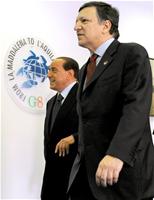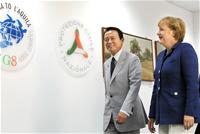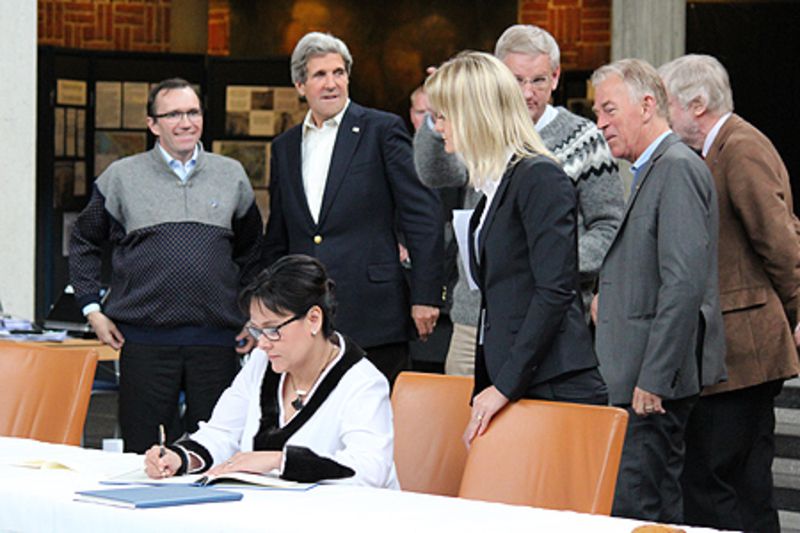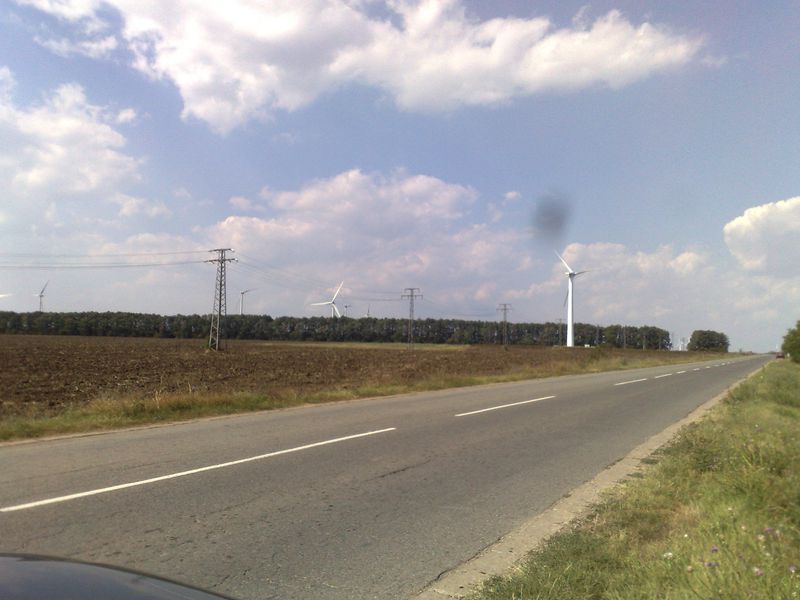Climate is the main obstacle at the G8 summit in Italy
Adelina Marini, July 8, 2009
 Since most industrialized countries as well as some developing countries announced their own plans for fight against climate change, today it appeared that the issue is the main obstacle in their summit in L'Aqcuila, Italy. The main dispute is that the developed nations insist the greenhouse gas emissions to be reduced by 80% by 2050, while the developing nations want to reduce their emission with only 50% for the same period. The online edition of the "New York Times" notes that the failure to reach an agreement on climate actually underscores the great differences among the developed states like the US and the developing like China and India, perceived as the greatest polluters in the world because of their fat economic growth and the old and cheap technologies in their industries.
Since most industrialized countries as well as some developing countries announced their own plans for fight against climate change, today it appeared that the issue is the main obstacle in their summit in L'Aqcuila, Italy. The main dispute is that the developed nations insist the greenhouse gas emissions to be reduced by 80% by 2050, while the developing nations want to reduce their emission with only 50% for the same period. The online edition of the "New York Times" notes that the failure to reach an agreement on climate actually underscores the great differences among the developed states like the US and the developing like China and India, perceived as the greatest polluters in the world because of their fat economic growth and the old and cheap technologies in their industries.
After all the developing countries had offered a compromise which was not agreed and that is to engage in the mid-term - by 2020 - as in the same time developed countries agree on financial and technological assistance. The "New York Times" notes that European leaders and environmental  activists had hoped that Mr. Obama would become a leader in the struggle against climate change, which is contrary to the statement of the European Commission president Jose Manuel Barroso who in his speech in front of the G8 leaders announced that he offers the EU to take the leading role in the world. This would be a bit hard, but given the intentions of the Swedish Presidency for the next 6 months, the task doesn't seem so impossible.
activists had hoped that Mr. Obama would become a leader in the struggle against climate change, which is contrary to the statement of the European Commission president Jose Manuel Barroso who in his speech in front of the G8 leaders announced that he offers the EU to take the leading role in the world. This would be a bit hard, but given the intentions of the Swedish Presidency for the next 6 months, the task doesn't seem so impossible.
Besides, Mr. Barroso offered a very strong argument - we should not waste precious time until the special conference in Copenhagen in the end of the year, for which a compromise must be reached so as an agreement to replace the past not very successful attempts for global approach to the climate change like the Kyoto protocol, signed but not ratifies by the US during George W. Bush because he did not agree with the price the industry had to pay. Now the US are facing the same problem because of the crisis, as well as the EU.
Even if a compromise is reached, it will not be legitimate without China whose leader Hu Jintao left the summit because of the troubles he has at home.
 But if we assume a compromise is possible to reach, its implementation would be very difficult because of the financial and economic crisis because the investors now are not many that would be willing to invest in expensive climate protective technologies without=out being aware of the return.
But if we assume a compromise is possible to reach, its implementation would be very difficult because of the financial and economic crisis because the investors now are not many that would be willing to invest in expensive climate protective technologies without=out being aware of the return.
 | © Government of Sweden
| © Government of Sweden | © КРИБ
| © КРИБ | © euinside
| © euinside